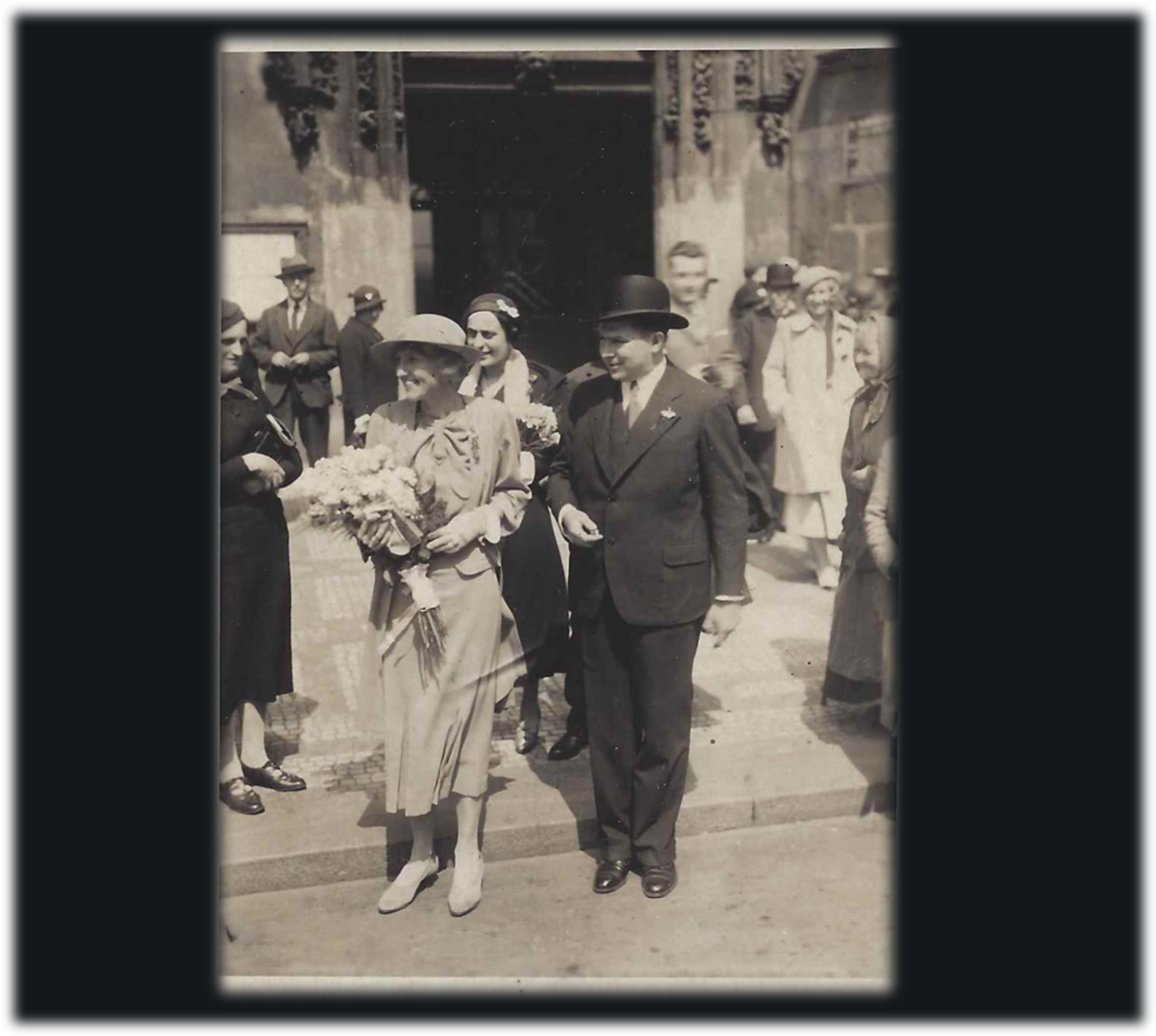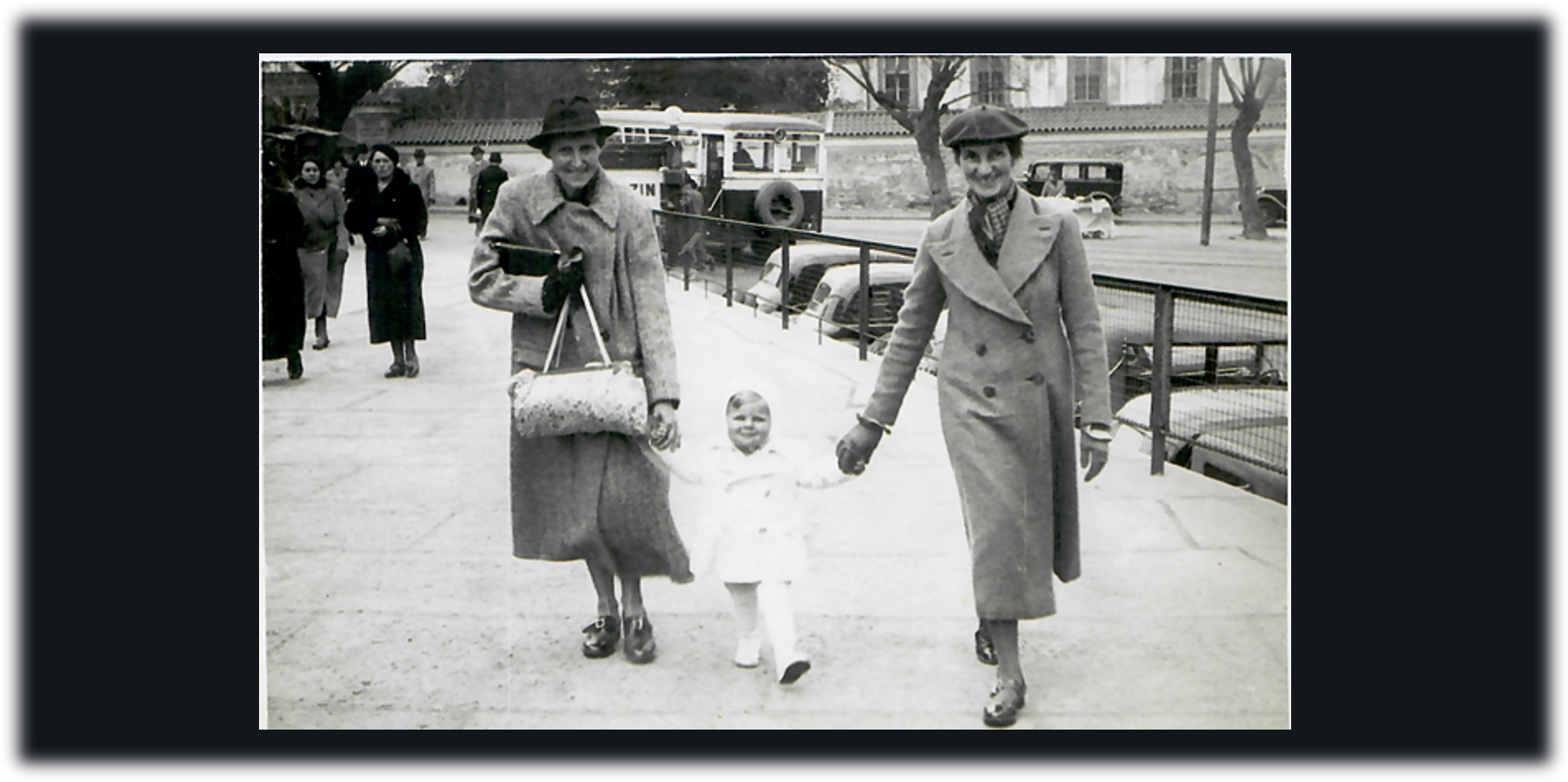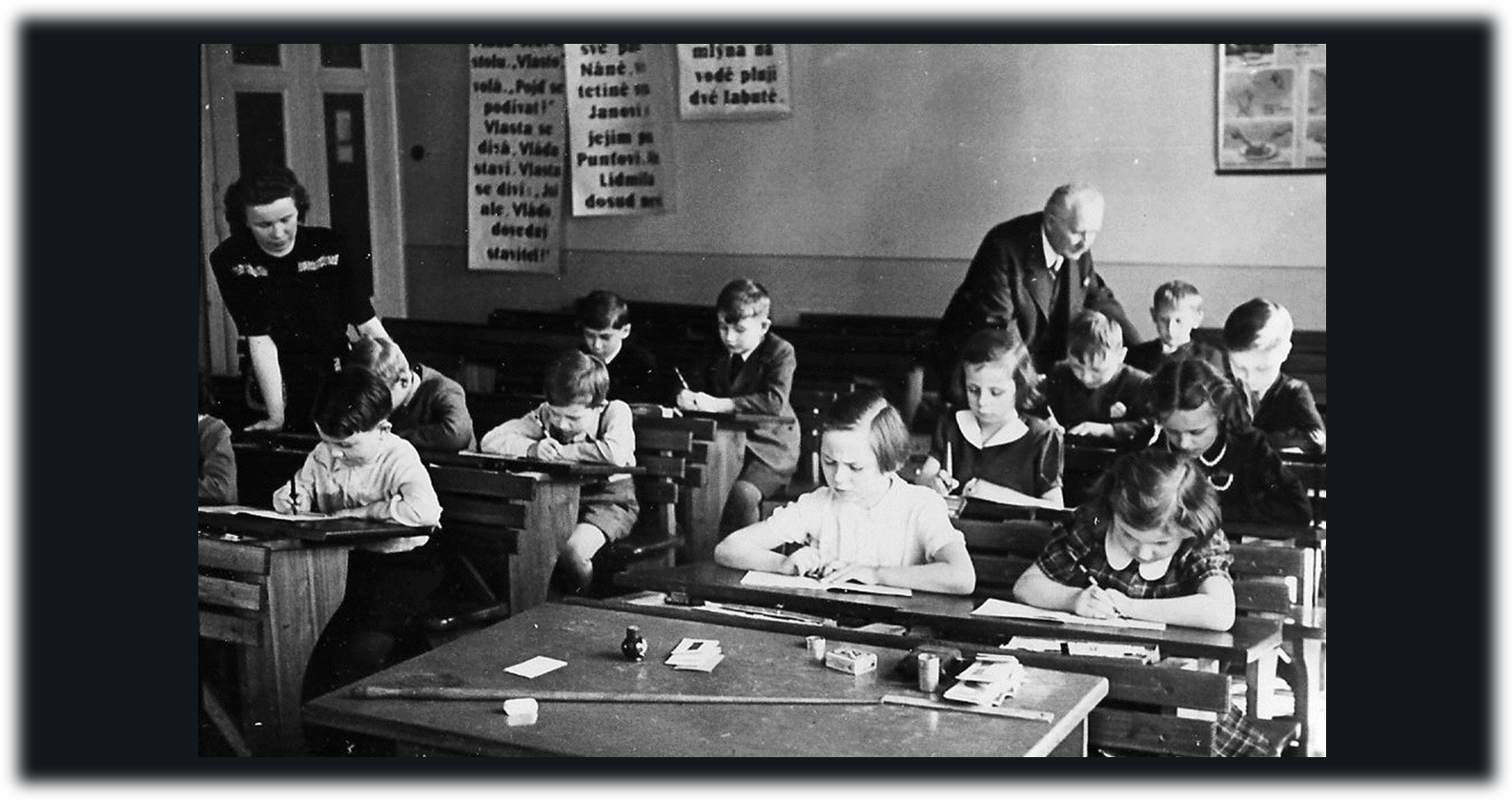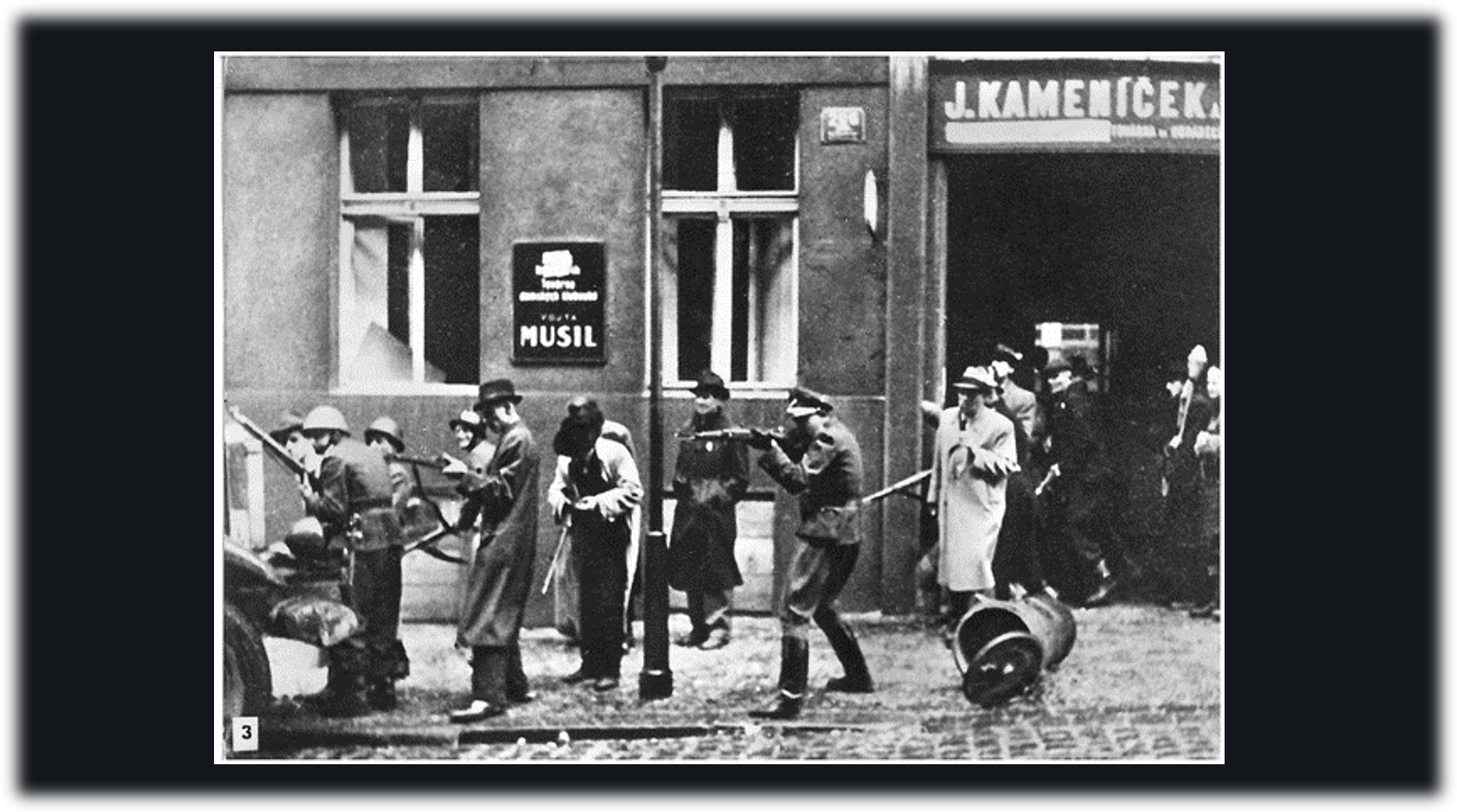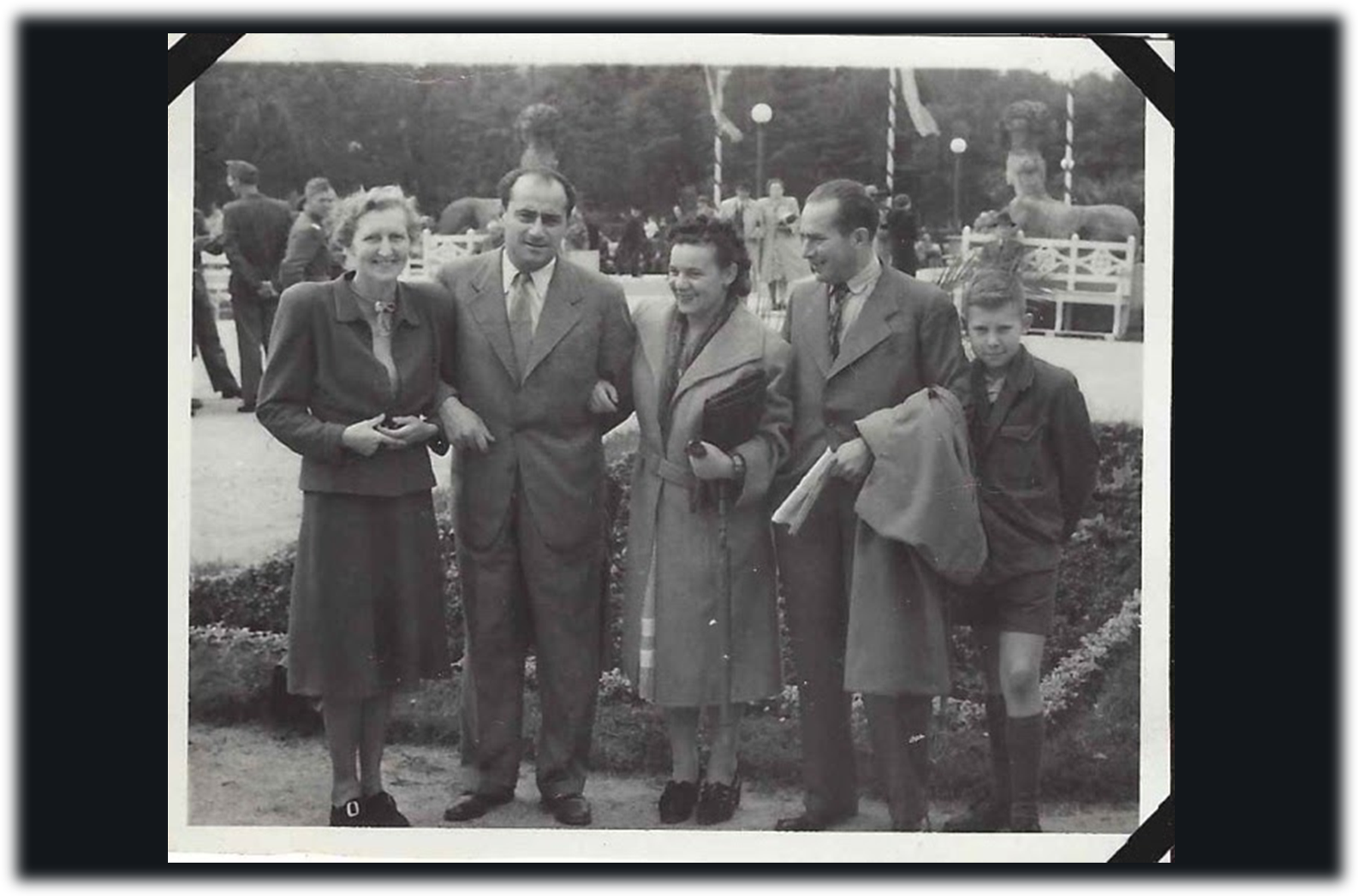* Note: Video is unavailable for this interview.
An Interview with Psychologist George Bonanno
George Bonanno, Ph.D. is a professor of clinical psychology at Columbia University's Teacher College. His research specializes in human resilience in the face of loss and potential trauma.
Tori Steffen: Hi, everybody. Thank you for joining us today for this installment of The Seattle Psychiatrist Interview Series. I'm Tori Steffan, research intern at Seattle Anxiety Specialists. We're a Seattle-based psychiatry, psychology and psychotherapy practice specializing in anxiety disorders. I'd like to welcome with us today psychologist George Bonanno. Dr. Bonanno is a professor of clinical psychology at Columbia University's Teacher College. Dr. Bonanno is recognized for his pioneering research on human resilience in the face of loss and potential trauma. In addition to the books, The End of Trauma and The Other Side of Sadness, he's published hundreds of peer reviewed scientific articles, many appearing in leading journals. So before we get started today, could you please let us know a little bit more about yourself and what made you interested in studying trauma and resilience?
George Bonanno: Oh, that's a good question. I have a long and a short answer to that question. The shorter answer I guess is I had the opportunity when I finished my doctoral program. I was trained, I think, pretty well in experimental research and in this general research methodology part of my clinical psychology degree. And the first position I took was in San Francisco, the bereavement project when I was given basically free range to design this massive study with the resources there. And so we just basically used methods that hadn't been used before with this kind of phenomenon. A lot of the work is mostly clinical and with people who were suffering. So the assumption at the time was that most people were suffering greatly with disease of the brain. Same thing with the trauma one. And when we used a different approach, more of a I think... we would get a broader... Okay, I was going to say epidemiological.
We did a broad swatch of people, anyone who had gone through a loss and then eventually did that in the trauma too. Anyone who'd gone through a particular event, we were interested in, and we would interview them and do experimental work with them and questionnaires as soon as we could after the event, and then following them. Right away, we began to see that so many, many people were showing, they had a difficult time talking about it when they had to, but they were basically functioning really well in their lives. And we found that right away and so we began to document that. And then I thought, "Well, this is kind of remarkable." So I was interested in this and we just kept pursuing it. And before I even realized it, I've now been studying that for 30 years. I didn't really intend that, but that's what we've been doing.
Tori Steffen: Right. Yeah, it's funny how one study can kind of lead you down a road that way.
George Bonanno: Exactly, yeah.
Tori Steffen: Yeah. Well, I ended up reading your book, The End of Trauma, which was very interesting and investigates why some people might develop PTSD after traumatic events and then some might not. So could you kind of explain that for the audience a little bit?
George Bonanno: Well, as I mentioned, we were finding these patterns for years. We called one the resilience pattern or the resilience trajectory, and those are people who they go through an event, everybody is distressed and disturbed by a major stressor or a major, I use the word 'potential trauma', but everybody has those reactions. And I'd say just about everybody and maybe 85% of the people exposed by a major life-threatening event or a major loss, or something like that. But for most people, it seems to abate within a few weeks, sometimes a little bit longer, sometimes a little bit less. And so we've replicated this now so many times and other people have now as well, dozens maybe. I think the last count it was something like 80 or 90 studies showing this. So of course over time, I was busy just simply verifying this and looking at it from this way and that way to make sure we were correct in this assumption, that these people were really resilient, they're not just telling us. So we had alternative methods. We usually talk to multiple people.
So then of course, naturally we began to ask, “What causes this? Why is it that these people are so resilient and other people not?” And that's a question I'm still trying to understand today. There's a longer answer to that one and also a shorter answer. The shorter answer if I can give you it quickly is that, so there are many factors that can be identified that correlate with resilience, and we've identified these factors and other people have too. And there's a widespread assumption that there's sort of several key factors that make people resilient and resilient people have these. And after really thinking about this and studying this for years, I think they've come to the realization that there aren't key factors. There's so many correlatives, so many predictors that they're just a multitude, well over 50 and counting.
And so how do we make sense of that? But it turns out all these things also are pretty small effects. In other words, they only really explain a little bit. There isn't any one factor that really makes you resilient or not. In fact, people aren't resilient. And that led that people have to become resilient. Resilience I think of as an outcome. So all those, I'm flying a lot of this past everybody. But the answer becomes what I call regulatory flexibility. Every time we're confronted with an event, we'd have to work it out. We'd have to embrace the event and find out for ourselves what works in this situation. And we do that through a process of trial and error. And that's very much the way humans cope, very much the way humans do the world. We are equipped for that. We try things, if it doesn't work, we try something else. So that's really the answer. We've studied flexibility now in detail, we have many different components of flexibility. We identified the pieces of us and we try to keep it simple, but life is not always simple.
Tori Steffen: There's so many aspects and variables that kind of go into resilience. And I remember reading about the resilience paradox, and I think you listed, like you were saying, about 50 variables that could go into why somebody might be resilient after experiencing trauma. One variable that I remember being pretty significant is having a support group or people around you to support you after experiencing trauma. How significant would you say that particular variable is?
George Bonanno: Well, I think there are some factors, social support, emotional support, instrumental support. If you break down social support or what we call interpersonal support, it's actually not one thing, it's many things. And people need different things at different times. So sometimes they need help with the daily aspects of living, instrumental support. Sometimes they need the emotional support. Sometimes they just simply need the group to belong to, it's about identity. So there are lots of different pieces of that. And we tend to assume that social support, anyone of this broader umbrella of support is really the "that's always good". But the research shows pretty clearly, it's not always good. It comes with a cost. Everything comes with a cost. Benefits and cost. And the cost of support have been studied research wise, and people have told me different costs that sometimes people just aren't able to engage in the kind of reciprocity that's required for support.
Sometimes the support is well intended, but not very helpful. Sometimes the support might undermine a person's sense of efficacy and sometimes it's just not what people need. Sometimes people need to be isolated, they need to be alone and work something out for themselves. Sometimes people don't want to be around other people because of whatever the event was that they experienced. And so in particular moments, it's not always the answer. And another piece of that is that when we cope with something major, it doesn't go away, as every good therapist... No, it doesn't go away and when you say, "Here's what I need you to do," bing - now it's gone. It takes time. And so what we do at any one time is different to what we do at another time. And so being around other people and just hanging out with other people, just enjoying their company and not thinking about the event is what we need maybe a little bit later down the road.
Maybe what we need immediately is just to be comforted by someone. Maybe we need help, as I mentioned, instrumental support and that comes somewhere in the middle. It all depends. And sometimes, as I said, we just want to be alone for some point of it. So it's really a matter of, we're not talking about, if your social supports always good, this is what we've been... What's good at this moment? And that's really what we see as being helpful.
Tori Steffen: Right. Yeah, I can see that it would definitely vary between participants that you've interviewed. One situation might work out a little bit better. So it definitely just varies across the population. And the flexibility sequence that you had mentioned earlier, I remember in your book it stated somebody asking themselves after a traumatic event, what am I able to do versus what do I need to do. How might that distinction help one be more flexible?
George Bonanno: Well, that distinction that's when we break it down and move to different components. So part of being flexibly adapting, which you'd say, is reading the situation first. A lot of people... We assess what's happening and ask, "Well, what do I need to do here?" We've grown up doing that, but we do this normally without thinking. Part of what I think is important clinically is bringing that to people's awareness, that we do that and that that's how they get through an event. They have to think about it, kind of embrace it even for a short time and ask those questions. The question about what am I able to do comes next. And we sense that what I need to do here is I'm ruminating, I need to stop myself from ruminating, or I'm thinking about this all the time, or I'm afraid to go back to this place. I'm even afraid to go out. Or I can't sleep, what do I need to do?
I need to find a way to sleep tonight or sleep for the next few days. I need to consult people. I need to ask people, I need to figure out what do I have... But then we get to the question of what am I able to do? And that comes to our repertoire. What do we have at our disposal? What do we already know how to do? And I'm a big fan of having people think about this when they're not in a terrible bad shape. Because once we're really upset about something and we amidst of a crisis, it's really hard to think clearly. It's really hard to even think, what am I able to do? I'm not able to do anything right now. And that's a real fact of life.
When people are really upset, we don't think very clearly. So it's a good idea to think about these things in advance. And so we ask ourselves, what do I need to do here? What can I do? What are the tools I have? And then we try something. And we get to the last step, which is, did this work? Do I feel better? Did the situation change? If not, then we try something else. And I find this last step is where a lot of people stumble also. They stumble and they can stumble at any one of these steps, but the last step is when we ask ourselves, is this working? Because people often find out, "Well, no, I still feel terrible. It didn't work."
And they give up because their assumption is, "Well, I'm not good at this. I can't cope. I'm not a resilient person." But nobody can do everything every time exactly the right way. It's how we learn, it's how we become healthy people. Even the healthiest people don't always have an answer. They try things. It doesn't work, you try something else, especially if it's a major event, especially if you're in bad shape, you try something else. And that's just really how we do get through things. So I think that's also another important thing, clinical teaching moment for people to realize that.
Tori Steffen: Right.
George Bonanno: It's how it works.
Tori Steffen: Yeah, absolutely. I remember a case in your book about a girl named Maren who suffered a spinal cord injury from a horse incident.
George Bonanno: Yes, yes.
Tori Steffen: And I remember the key part of her recovery was her own optimism and motivation.
George Bonanno: Yes.
Tori Steffen: Do you think that those two things, motivation and optimism led her towards recovering so well?
George Bonanno: Sure. I think Maren's optimism, if I can speak colloquially, was off the charts. It was really extreme. And they told her she was paralyzed for the rest of her life and not only did she say I'm going to walk again, she believed she would walk again. But optimism, few other pieces like that, maybe confidence, our ability to cope, a sense of I'll get through things, I'll get through this, I'll work it out. And even if the goal is just to accept what's happened, I will work this out somehow. I'll find a way to live with this and be happy again.
And that motivation is really important for all the things that I've just said up until now. Because it's not easy when you're hurting, last thing you want to do is think about it and embrace it. What we really want to do is just push it away, cover our face in a pillow, feel lousy and just hate the world. Those are much easier, but we have to actually face what's happened and think about it enough to work out what do I need to do then and what's going to get me through this? And you need to be motivated to do that. So Maren was super motivated, but a lot of people are. I think none of these are that extreme. Maren is a great person, but she's not a superhero. She just had the will to do this.
Tori Steffen: Right. Yeah, I think that's a large part of it, your own personal mindset and believing that you can recover. But I mean, in a situation like that, it's just really interesting that that would have such a significant impact on her healing journey. So that's a great case to study. Well, Dr. Bonanno, I really appreciate your time. Are there any final words of advice that you'd like to share with the listeners today?
George Bonanno: Yeah, I would. Another thing that I mentioned in the book is what I call coping arguments, that we sometimes need to do something that doesn't quite seem like it's healthy. It's something we maybe never thought about doing. It's something that we're told is not a healthy thing to do. But in this moment, it may be, and I'm not going to mention too many examples, but I think things like, sometimes people, I hope the listeners don't mind me saying this, sometimes people get drunk and just for the evening. And we wouldn't think of it as a healthy coping behavior. But for one night, and it doesn't... The next day you feel lousy. It's not gone. But people feel like, okay, but I decided to do that and I'm in control. Now what do I need to do here? And they get through the morning to make themselves feel a little bit better.
Then they still have the question. I did something last night, it didn't work, but I did something. What do I need to do now? And it does seem to sometimes give people just a little break. So the other thing, I won't name any other examples, but I'm sure people can think of them, they just get us through that moment and then we take the next step. So John Lennon has a song called Whatever Gets You Thru The Night. And I think I mentioned that in the book, but it's like the song because it's really kind of what it's about. When we're coping with really difficult things, we just want to get through it. It doesn't need to be pretty, it doesn't need to make us super healthy people. We just need to get through it. So I think that's an important thing also to keep in mind.
Tori Steffen: Awesome. Yeah, that's great advice. And yeah, there's plenty of great information in the book too. I definitely recommend everybody checks out The End of Trauma by Dr. Bonanno. So yeah, thank you so much for sharing your knowledge with us today. And thank you everybody for tuning in and we'll see everybody next time. Thank you.
George Bonanno: Okay, thank you. Thank you, Tori, nice to meet you.
Tori Steffen: Thank you, you as well.
Please note: The views expressed by the interviewee are for educational and informational purposes only, are not meant to diagnose or treat any condition, and do not necessarily reflect the views of Seattle Anxiety Specialists, PLLC.
Editor: Jennifer (Ghahari) Smith, Ph.D.

